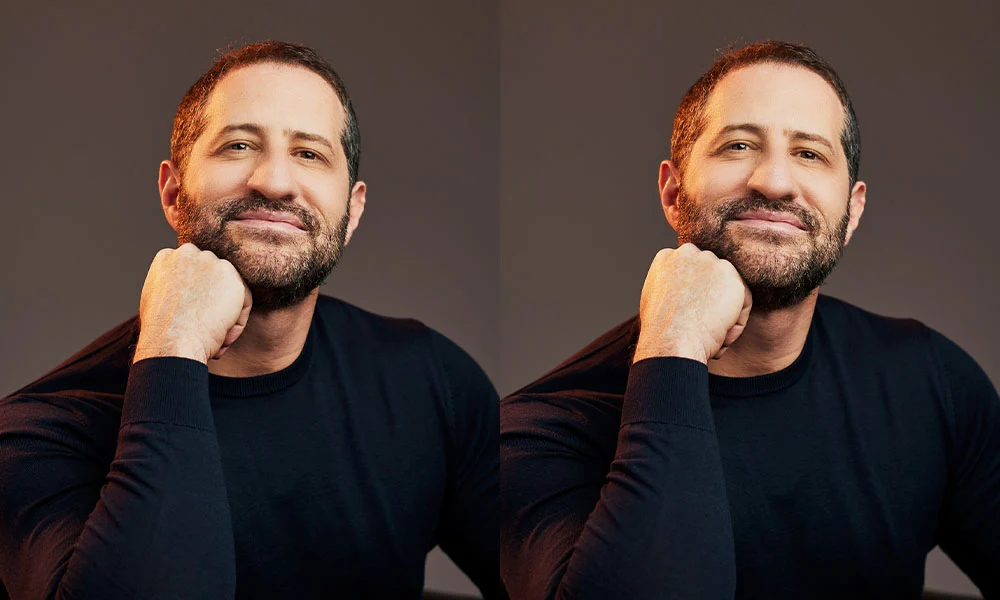Modi is the mononym of actor and comedian Mordechi Rosenfeld, who was born in Tel Aviv and moved with his family to the United States at the age of 7. After majoring in psychology and minoring in voice at Boston University, he worked as a Wall Street investment banker. Colleagues recognized his comedic chops and encouraged him to do stand-up, leading to a successful career change. Modi developed a large following, including in the Orthodox Jewish community, with an act that centers his Judaism. Modi later came out as gay and in 2020 married his partner Leo Veiga, who was raised Catholic and is also his manager. This interview, conducted earlier this year, has been edited for length and clarity.
What was your personal experience of being gay and being Orthodox?
I grew up in a home that wasn’t completely Orthodox, just a very traditional Israeli-American home. I went to shul. I went to a public school, but afterwards I went to Boston University, where there was a Chabad Yeshiva on campus, which I also attended. And at the same time, I realized that I was gay. The two had nothing to do with each other—I just liked studying Torah, and I was also gay.
Has the environment changed over the past 10, 20 years vis-a-vis acceptance of queer Jews in Orthodox spaces?
I would have to say 100 percent yes. I think the Orthodox community realized the situation: “Some of our kids are going to be gay, and we can choose whether to disown them (which is such an insane thing) or just say, “Okay, our son’s gay. He’s married to another guy,” or, “My daughter’s gay. Let’s hope they have kids, and let’s first hope they’re happy.”
I’ve been asked what you should do when your kid comes out. Don’t be like, “Oh my God, I can’t believe this is happening to us! How am I going to get your sister married off?”
The first thing you do is ask your kid, “What’s going to make you happy?” and take it from there. Because let me tell you something, if you handle that the wrong way, you might find the kid hanging in the garage. And that’s not going to make anybody happy.
But I do think, from what I’ve seen, that there is a lot of acceptance in the Orthodox community. There’s an organization called Eshel for gay Orthodox Jews, which is a thriving community. I’m so honored to be a part of it.
Eshel put out the results of a survey recently saying something to the effect that 50 percent of queer Orthodox youth end up leaving Orthodoxy. Do you see that as a major problem?
I think it’s everybody’s own journey. I say, we’re not the chosen people. We’re the choosing people. When someone realizes that they’re gay, they do not have to give up practicing Judaism in whatever way works for them. I don’t think it’s all or nothing.
Read the full interview at Moment

